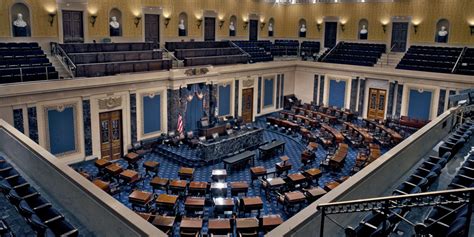The Senate trial has now completed the last preliminary step. Democrats made efforts to subpoena more witnesses and documents. The House is should come to trial with their evidence ready to go. There were changes to rules but not enough to suit the Democrats.
Bring on the dancing bears
In a series of party-line votes, every attempt by Democrats to subpoena documents from the White House, State Department and other agencies, as well as testimony from White House officials was turned back. The debate between the House impeachment managers and the president’s legal team stretched into the wee hours Wednesday.
With Chief Justice John G. Roberts Jr. presiding and senators are sworn to silence at desks piled with briefing books. Acrimony was raw after midnight that Chief Justice Roberts felt compelled to admonish the managers and the president’s lawyers to “remember where they are” and return to “civil discourse.”
On its face, the prolonged debate was about the rules and procedures. But the tone and tenor is now set for the broader political fight. It appears this is going to be Kavanaugh redux. Look for the president to achieve an acquittal. This is a preview of what we can expect in the 2020 campaign.
Bring on the clowns
Democrats were laying the groundwork to argue that the trial was rigged. They will denounce Republicans. The president’s defense insisted the Senate move decisively to remedy what they characterized as an illegitimate impeachment inquiry unjustly tarring the presidency.
Just before 2 a.m. Eastern, the Senate voted along party lines, 53 to 47, to ratify Mr. McConnell’s trial plan. As adopted, the resolution paves the way for oral arguments against Mr. Trump to begin as soon as Wednesday. They rejected 11 other amendments. The charges are the abuse of power and obstruction of Congress. Yesterday the Senate completed its pretrial rule-setting session.
The Democrat majority in the House asserts the president used the power of his office. The accusation is he attempted to pressure Ukraine to announce investigations into his political rivals. They assert the withholding of about $400 million in military aid for leverage. They additionally assert POTUS then sought to conceal his actions from Congress. Their evidence amounts to an accusation of POTUS blocking witness testimony and documents.
Arguments
The defense argues the charges are baseless. They amount to criminalizing a president’s prerogative to make foreign policy as he sees fit. They also claim the impeachment was unconstitutional because the articles of impeachment do not outline a specific violation of the law.
Yesterday’s work was a debate focusing on what constitutes a fair trial. Mr. McConnell also received a sharp reminder about the limits of his power to control an inherently unpredictable proceeding. Early in the day, McConnell was forced to make some last-minute changes to the rules he unveiled Monday. His original rules would have limited opening arguments by both sides to two 12-hour days. The rules also would not allow the findings of the House impeachment inquiry into evidence without a separate vote later in the trial.
In the reading of the resolution aloud on the Senate floor, two days became three. Additionally, the House’s records are to automatically get acceptance as evidence. The majority leader added a new provision allowing the defense to move to throw out parts of the House case. Yesterday the Senate completed its pretrial rule-setting session.
Succinctness or bloviating
Mr. Cipollone rose first, delivering a brief statement urging senators to support Mr. McConnell’s proposed rules and accusing Democrats of seeking to use the Senate to complete their sloppy investigative work.
Democrats spent hours detailing the factual record compiled by the House investigation. They read a catalog of the witnesses and documents Mr. Trump had not released to them. Senators have a responsibility to try to push all the facts to light, they argue.
Just an hour or so before the trial began, the House managers submitted one final written rebuttal to arguments put forward against their charges by Mr. Trump’s lawyers. In 34 pages, they reject the lawyers’ assertion that abuse of power was not an impeachable offense. They reject that Mr. Trump’s action was legal when he gave orders for administration officials not to appear for questioning in the House or provide documents for the impeachment inquiry.
Even after Tuesday’s changes, Mr. McConnell’s proposal makes way for potentially the fastest presidential impeachment trial in American history, particularly if the Senate declines to call witnesses.
Only two other American presidents have stood trial in the Senate for high crimes and misdemeanors. The Andrew Johnson impeachment took place in 1868. His trial took the better part of three months. There was testimony from dozens of witnesses. There were long periods for discovery. The result was acquittal by one vote.
Conclusion
Mr. Clinton’s trial lasted five weeks, included testimony from three witnesses. The result was an acquittal.
Without witnesses, Mr. Trump’s trial could conclude by the end of January. If senators ultimately do call witnesses, that timeline could stretch weeks longer. Buckle up your chin strap the Senate is done with its pretrial rule-setting session. Let the games begin.
